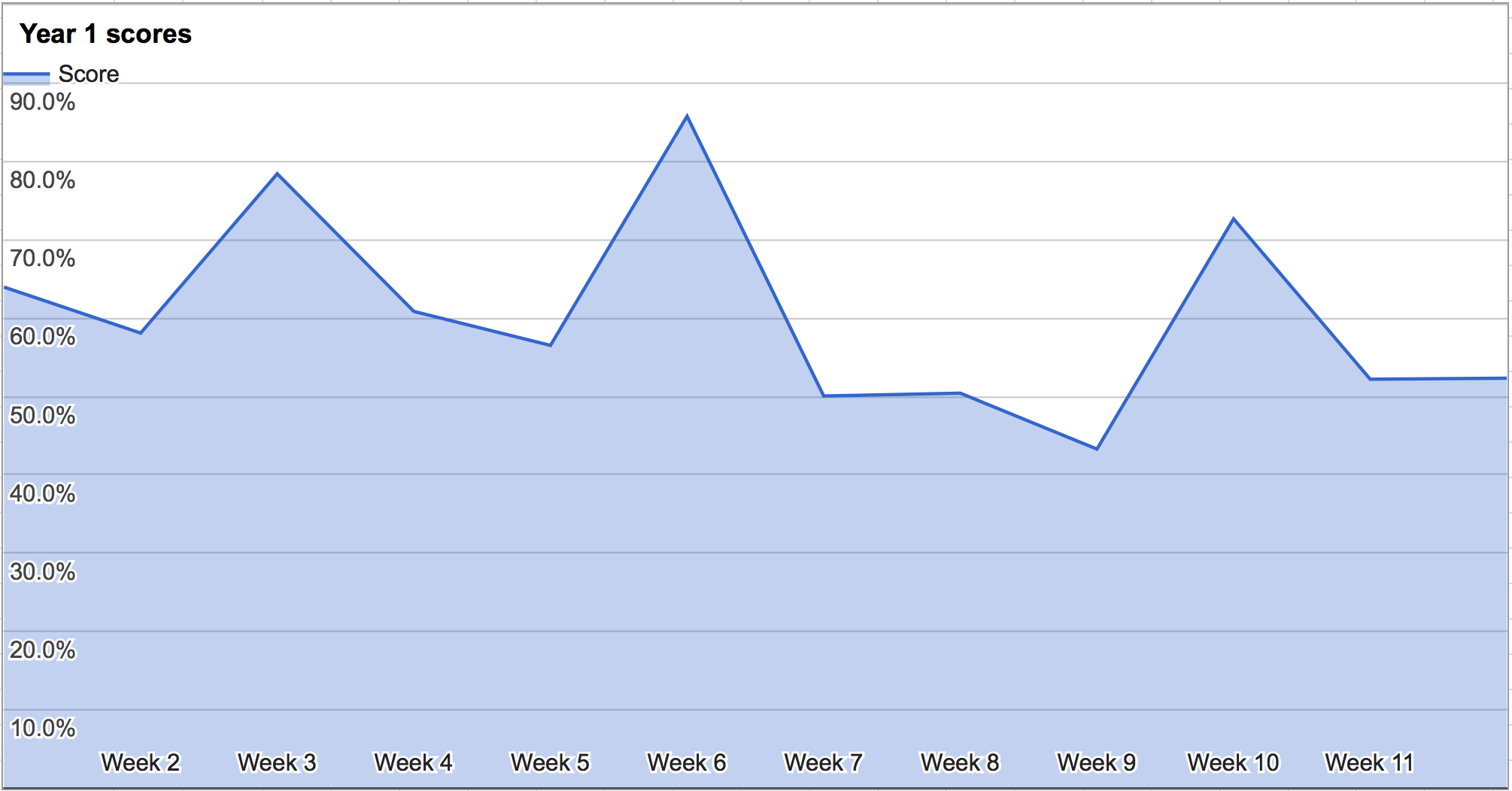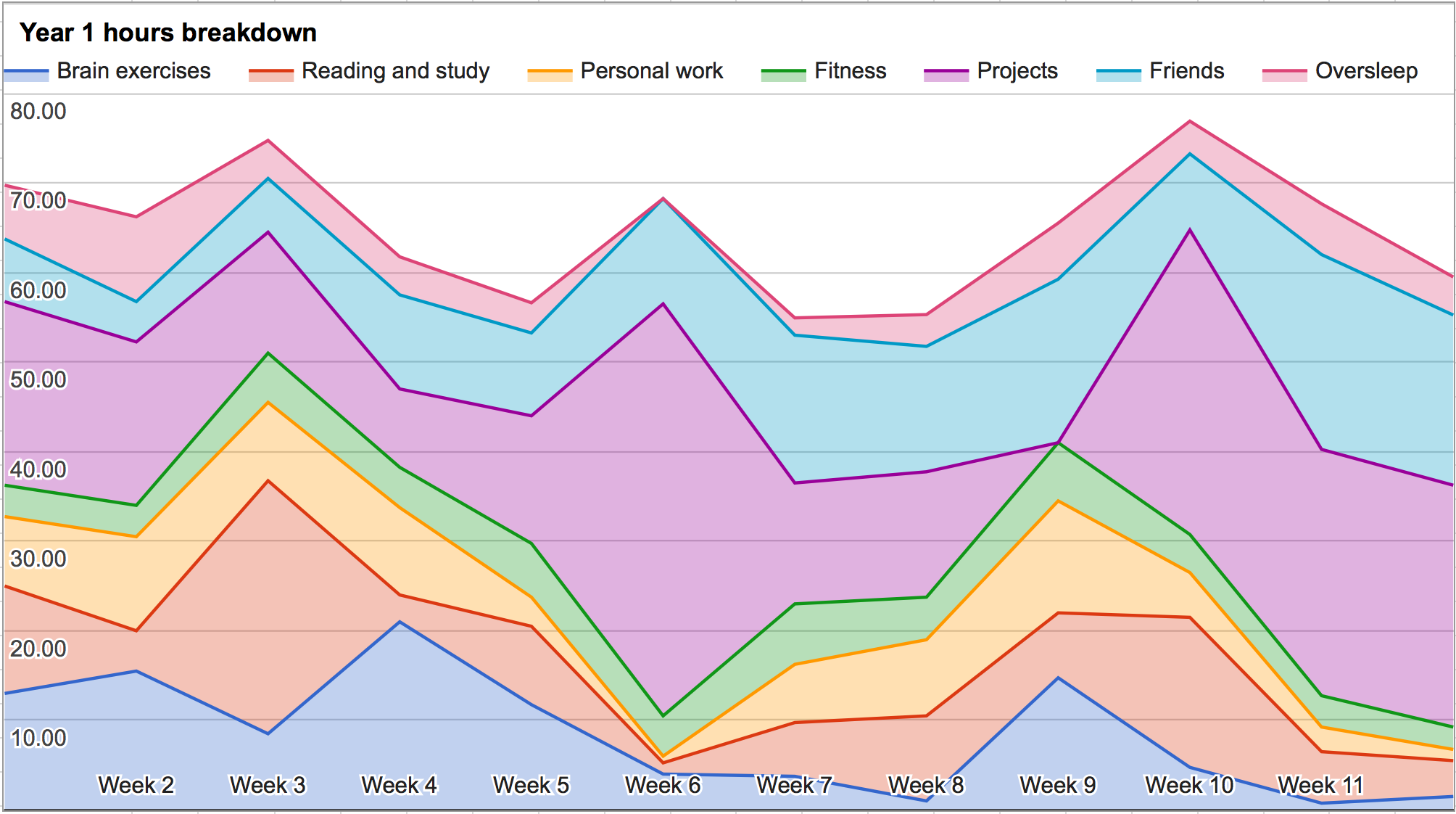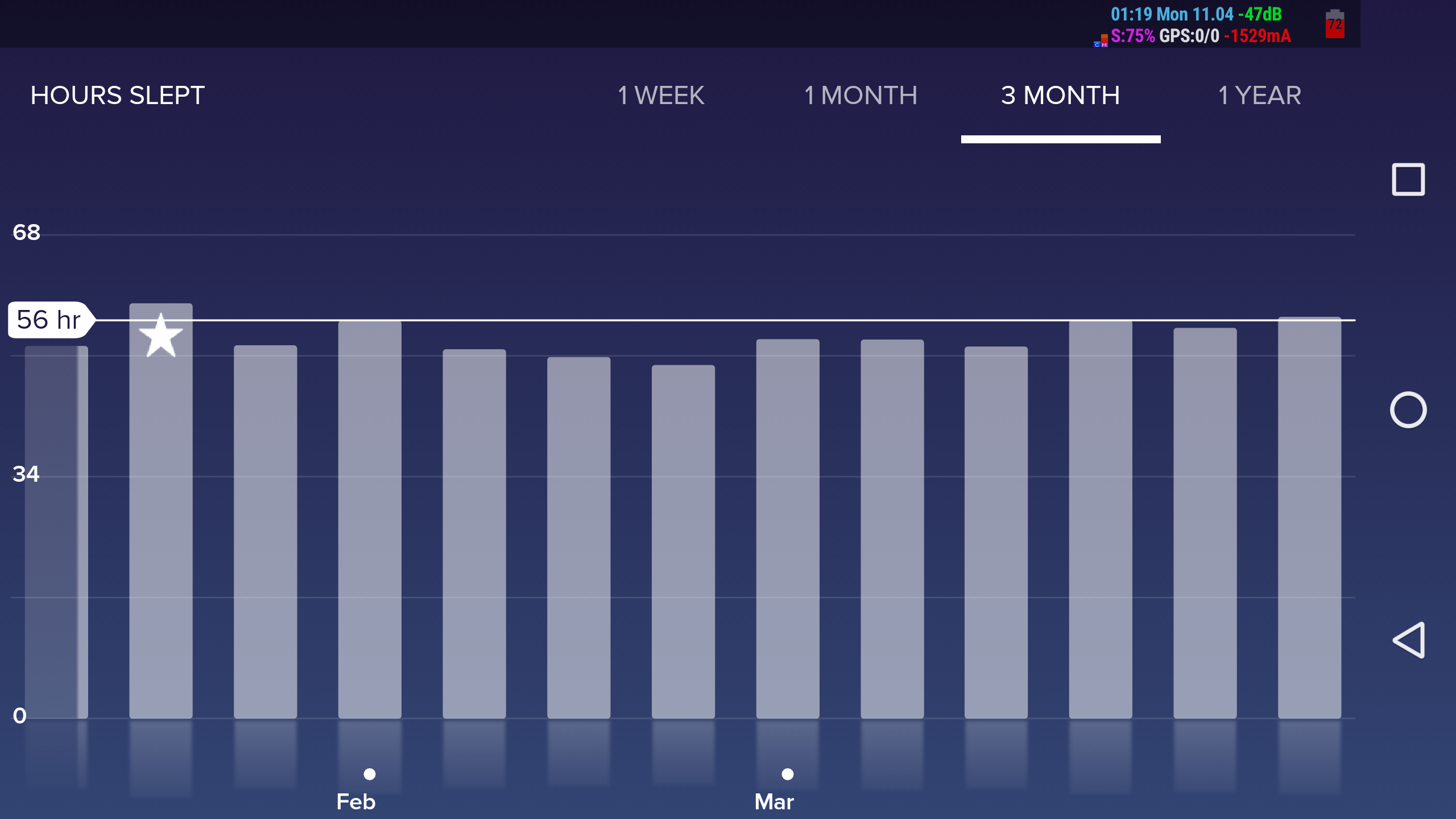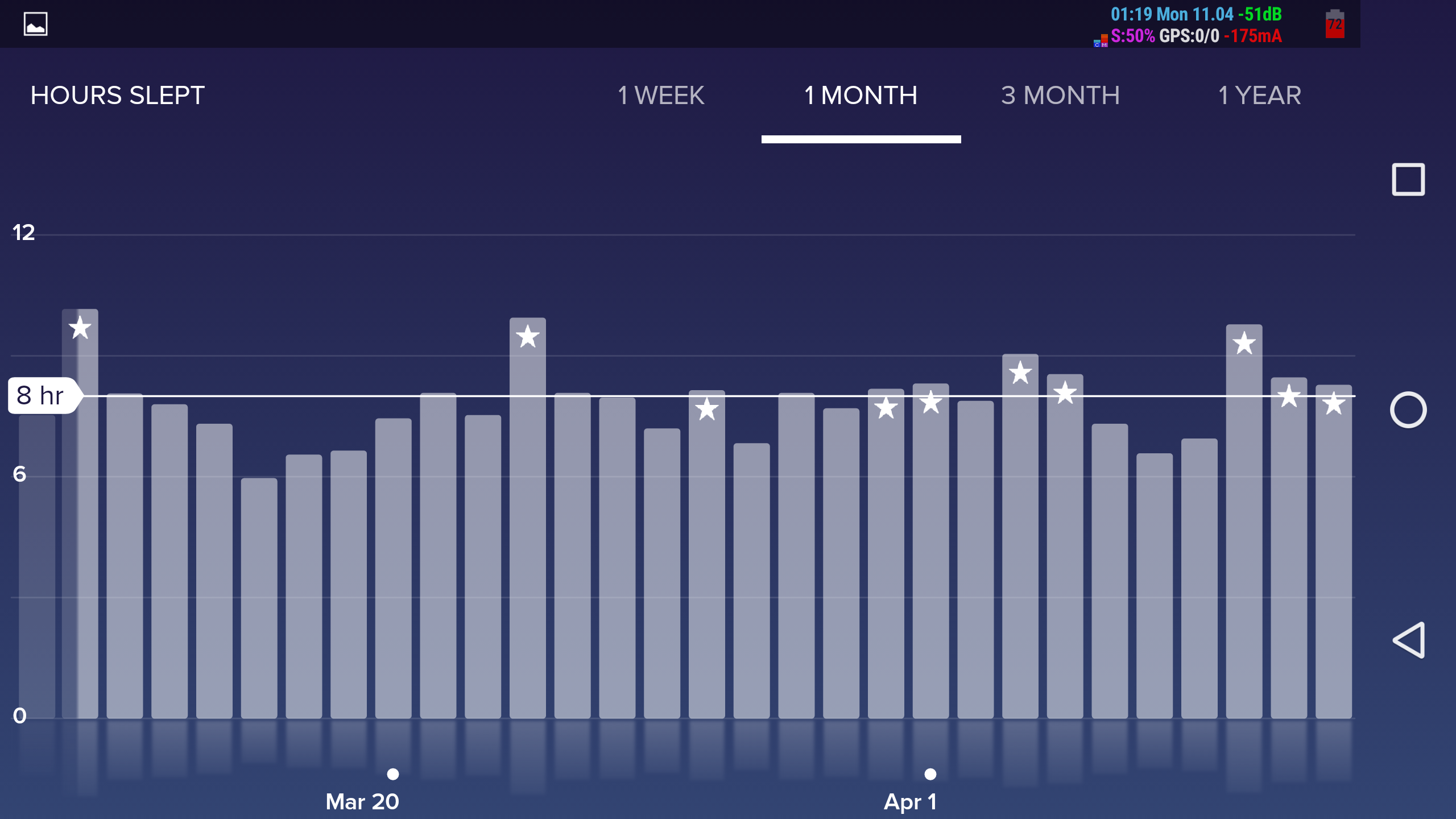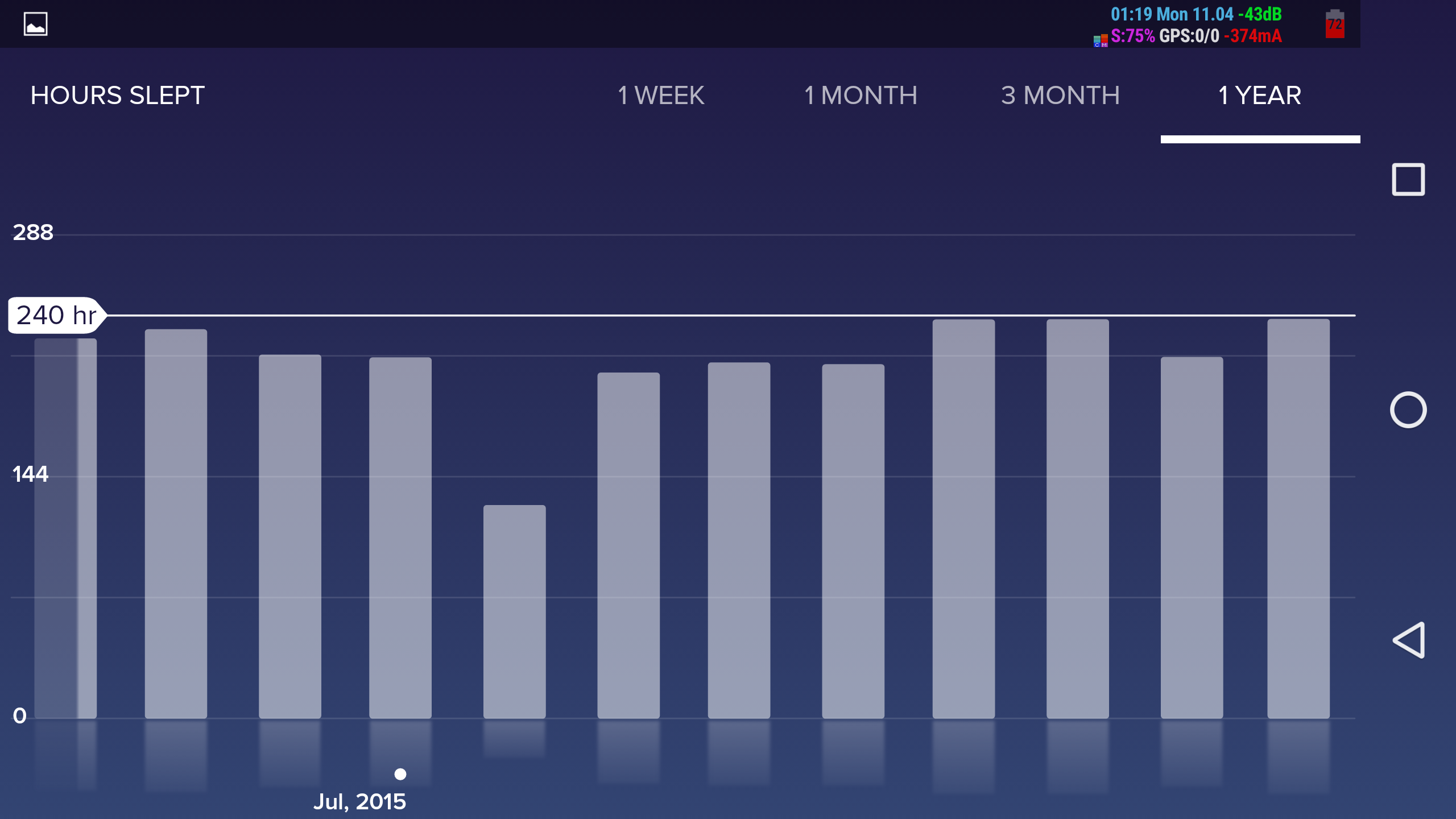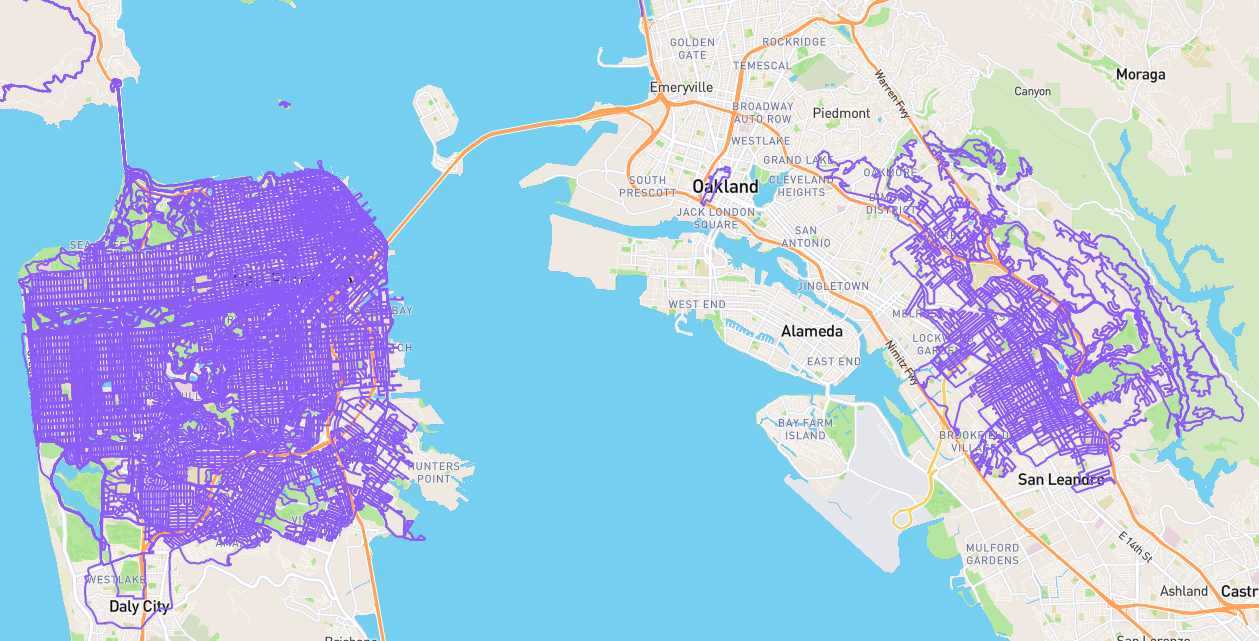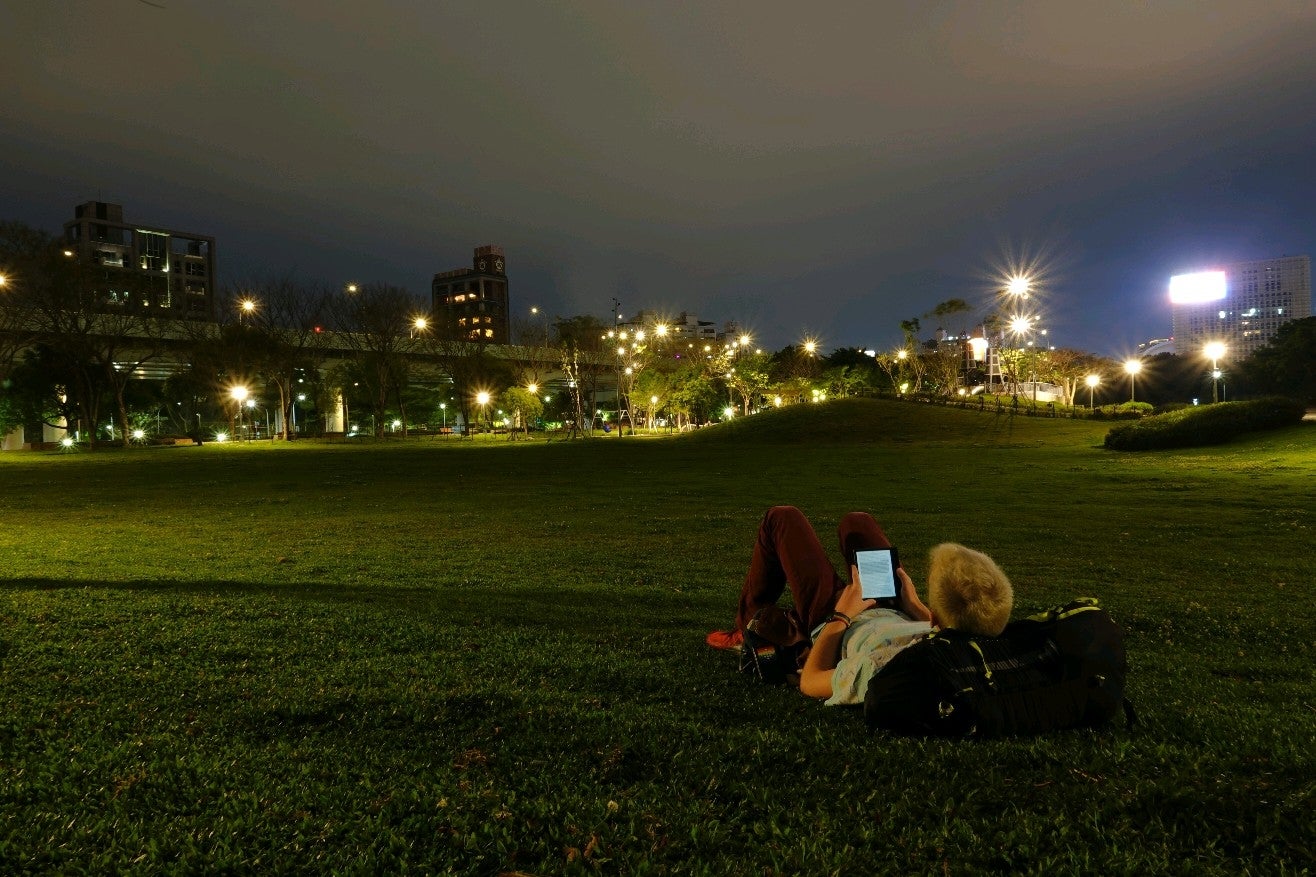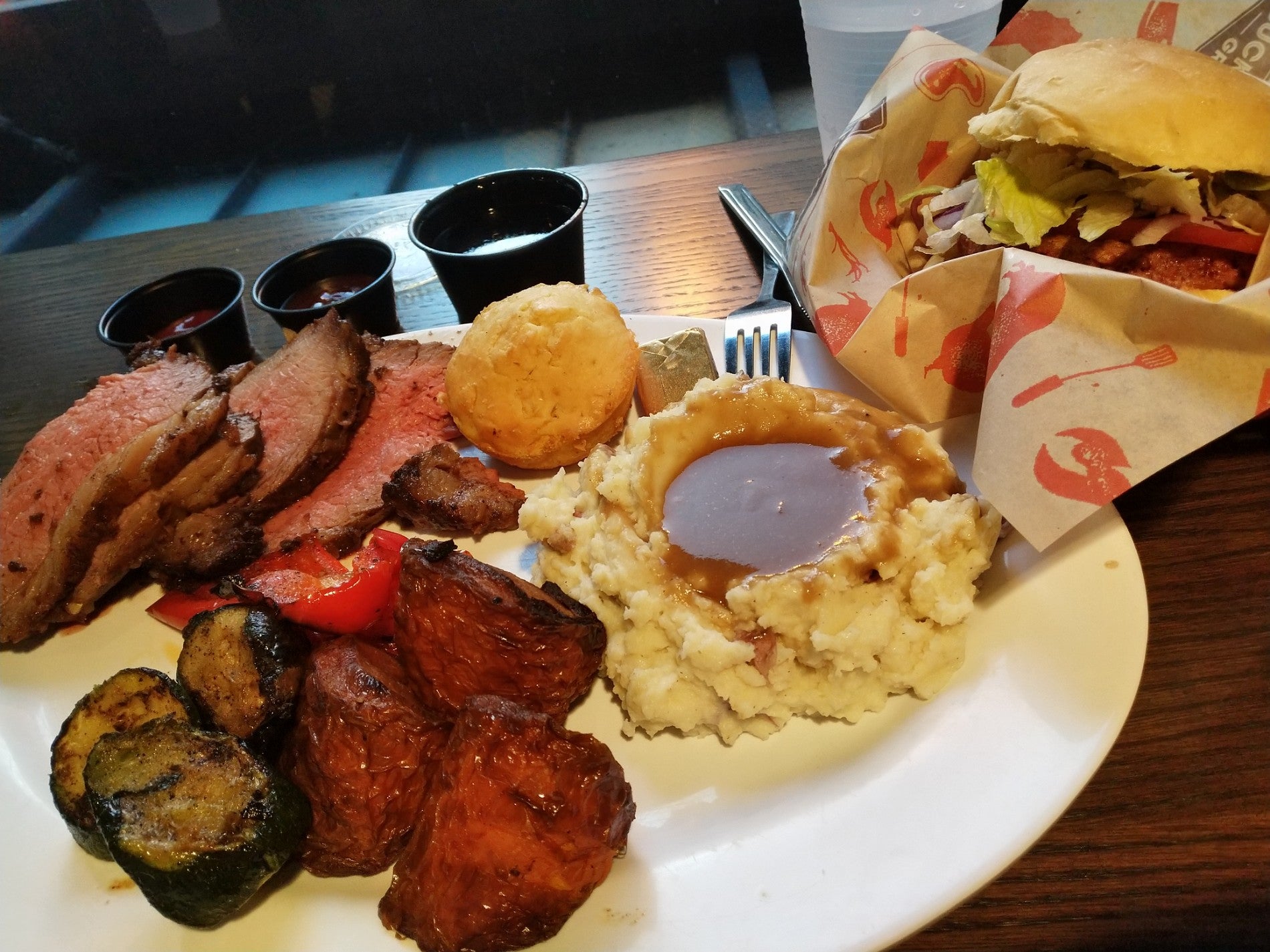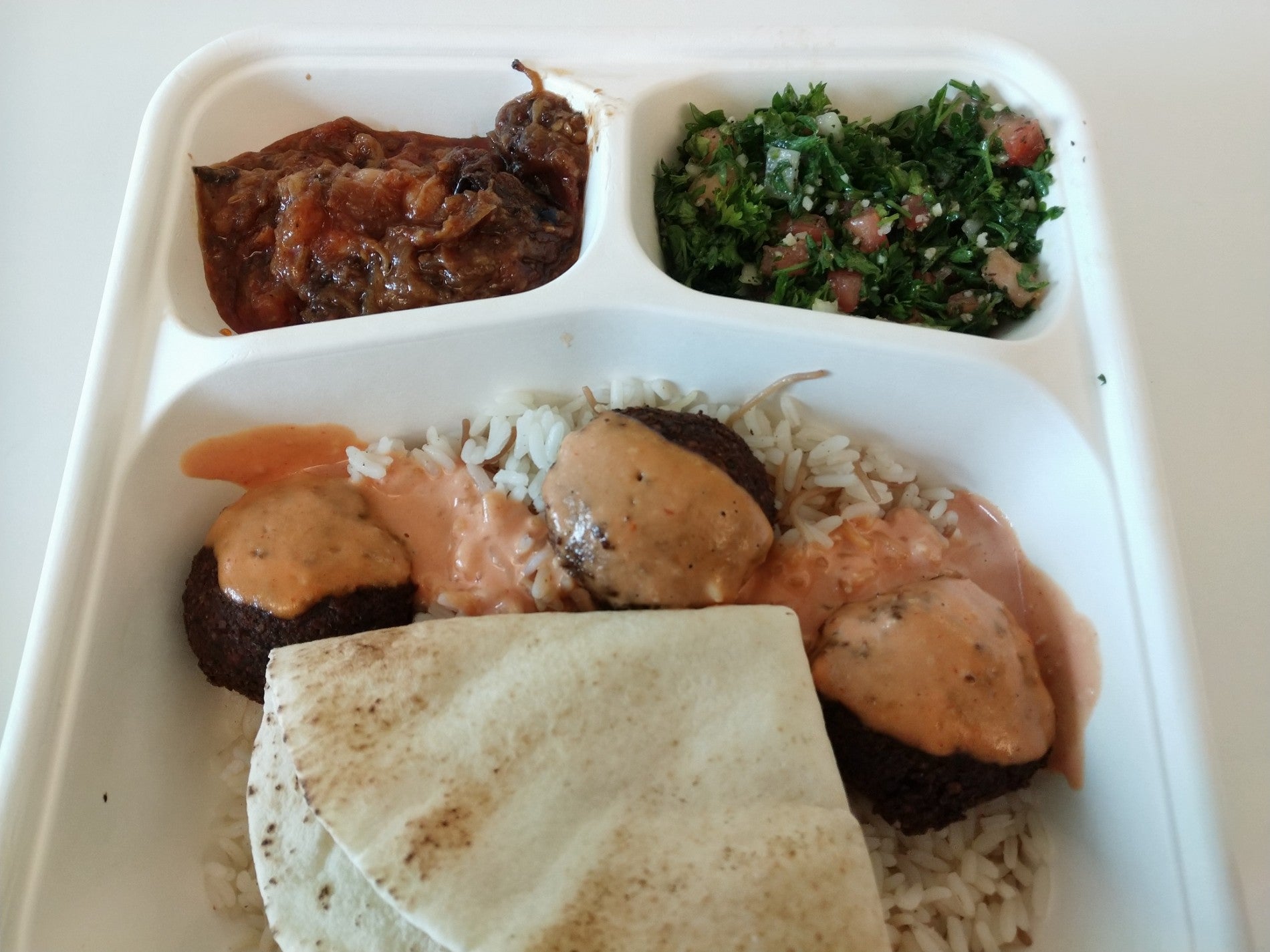Year 1 review: need more discipline, but many successes
Three months ago, randomly read a book called “The 12 Week Year,” and I decided to start using the system to make sure my time away from work wasn’t wasted, and hopefully establish some routines that would make it easier to be efficient and productive. While I stuck with it in general, I didn’t take it seriously enough to see the major benefits I hoped for. It still helped me be more accountable and better understand my failings, so I will continue with it. I probably need some adjustments; maybe writing this will help.
I structured my 12 week plan not around specific tasks as suggested, but around time blocks dedicated to types of tasks. This was because I am trying to do a lot of different things and don’t have specific milestones. Perhaps this is one of the main problems, but I figured both approaches have downsides:
- Do my best picking specific tasks for the 12 weeks or even for each coming week, but then end up spending less time in “deep work” due to cutting corners, revising down the scope of the tasks, or otherwise experiencing the unpredictability of life.
- Spend at least a specific number of hours on general tasks, such as math or programming projects, but end up spending less time in “deep work” due to overhead, distractions or simply not focusing as hard as I could.
The task oriented approach may work well in a work environment with deadlines, but I thought it might lead me to spend much more or less time than hoped on things due to arbitrary task definitions. If something takes longer than expected, the author would say to stay at work till it’s done. Likewise, going home early is fine if the task is complete, because the whole point is to complete the task. But I realize I may also be making excuses not to try something that might indeed work. At any rate, I figured time blocks would lend well to establishing routines, something I feel I desperately need.
Scores
Over the entire 12 weeks, I scored and average of 62.2%. Had I spent all the time I planned on given tasks, I would have automatically gotten 100%. The tasks didn’t even need to be done at the scheduled time for this score, as I did not build in a penalty for rearranging my schedule. Perhaps I should have, especially since building routines was a main goal. Cal Newport suggested in “Deep Work” to redo your schedule as often as necessary, arguing it was better to train your brain follow the schedule, even if revised, than to give up entirely and train your brain it can do whatever it wants whenever it wants. I may have gone too far, though. What started as schedule adjustments due to waking up late, tasks taking longer than expected or interrupts turned into “planning” my schedule for the day retroactively. I essentially did whatever I wanted, though trying to spend time on the right tasks, and making the calendar match what I did when it came time to figure out my score. Surely this is not what the authors of either Deep Work or The 12 Week Year had in mind.
Since following the plan would get me 100%, and I didn’t get nearly that during any of the weeks, it’s obvious I generally failed the routine aspect of this. That my scores themselves were pretty inconsistent only shows I really, really sucked at routine!
Hours
The routine problem wasn’t just in doing things at the right times. As I touched on last week, I’ve been less disciplined than necessary to even get things done at all. I know a big part of this has been allowing distractions to take over the day, and being far too lenient with myself when it comes to rearranging my schedule. That proved to be a slippery slope, where initially I was just doing things out of order, but as my tasks piled up, I had to start deleting them off my calendar. Once that was acceptable, it became easier to delete more and more tasks. And once my score was suffering, the bar was lowered, making it easier to do worse, in a sense.
The above chart of my time spend on categories of tasks makes pretty clear I failed to stick to much of a routine, despite my high hopes. Part of this may have been inevitable, as my project priorities shifted as I realized my basic studies were taking too long, and I needed to start focusing on things more directly career related. For example, I kind of dropped the basic science review halfway through my chemistry textbook, and I didn’t get to biochemistry or physics. I also didn’t get nearly as far as I hoped in Khan Academy math studies. Often I had to decide whether to focus on studies or programming projects, and I found I often justified focusing on programming because it would be more likely to keep my attention, and therefore I would be more productive overall. Still, I was frustrated at how much work the Arduino sound processing stuff became, especially the upfront trial and error involved with figuring out how the analog to digital converter worked on the Arduino DUE. And then I decided to pause that project while I switched to SmartThings home automation work. That was unplanned, spurred by an incident involving people climbing on our roof during the night while our house was being painted. But realizing I need to get a job soon, it seemed like a better project since it might more directly lead to a job, and it’s something people can relate to better than sound reactive electronics.
Sleep
For similar reasons as discussed above, my sleep was somewhat inconsistent, and I definitely didn’t wake up as early as I hoped in general. My scoring calculations penalized me for waking up at an average time later than around 9:15, though I planned my schedule with an 8:00 assumption. Still, I woke up on average 38 minutes later than that 9:17 threshold, and therefore almost two hours too late to start my schedule on time. The trend on this got better till Week 6, when I finally woke up before 9:17 on average, but then I started getting worse again. That’s reflected above in the hours chart, with “oversleep” being the top graphed item.
While total sleep didn’t factor into my scoring, my Fitbit makes it easy to see how many hours of sleep I got. Over the whole 12 weeks, it looks roughly like I got less sleep during the weeks I woke up earlier, but I didn’t quantitatively analyze this. That seems to tell me I went to bed at more consistent times than I woke up.
Just for kicks, here is every day for the past month. Not very consistent!
And looking at the month totals for the past year, the past three months don’t seem out of the ordinary. Perhaps if I actually woke up at 8 every day, they would have been!
Successes
It may seem like this whole experiment has been a failure based on how much I’ve written about things that could have gone better, but there is a lot to be proud of here as well. And really, it’s not the best strategy to change all your habits at once, so maybe I did about as well as could be expected.
Most shockingly, I did not have a single drop of Diet Coke (or Coke or Pepsi or Sprite, for that matter) since I started this three months ago. Previously I was drinking a disturbing amount, sometimes a two liter bottle in a day.
My fitness regimen had three parts: running, ab workouts and pushups. Admittedly running took priority at the expense of the others, but still I did do the ab workout more in the past three months than all of last year combined, and I can do much better. My running has been more consistent than ever in my life. February and March were my two highest mileage months ever. I’ve also been running faster, though I have yet to consistently run more than 10 miles faster than 10 minutes per mile. But for shorter distances, I’ve been running around 8:00 or faster, whereas previously I was doing 10 minute miles even for three mile runs. In the last three months, I ran 233.1 miles in 37 hours, 8 minutes. Granted, my brother Tim ran a 100 mile race this past weekend, so I have much to aspire to.
As a side note to the fitness comments, I’ve been noticing some slightly appealing outlines on my abs for possibly the first time ever. They aren’t crazy good or even good yet, but they’re getting there. Since I haven’t done a ton of ab exercises, I’m assuming this is mostly due to some combination of the running or perhaps even the cessation of soda drinking. I was always curious how my body could be so different than Derek’s that year we worked out almost identically and ate many of the same meals, aside from my Diet Coke usage. Perhaps the Diet Coke played a bigger role than I hoped.
Then, I managed to start getting in the habit of doing exercises on BrainHQ (14 hours), got somewhat back into the swing of doing WaniKani for Japanese character and vocabulary study (27 hours), and I made some progress on Khan Academy (41 hours). For all of these, I only spent one third to one half the time I hoped, but it was certainly an improvement on not touching them for a year. I also spent 17 hours playing chess, though this was sometimes a distraction in itself since it allowed me to stay in bed when I should have been working on other things!
In the programming projects realm, I am still in progress on much of what I worked on during the last three months, but I did get featured in Atmel’s blog for my room lighting project. I’m also working on some SmartThings experiments, but those didn’t make the first 12 week year cutoff.
My personal life has also generally been good lately. Three months ago I was spending a lot of time with Yizhen, mostly professionally, but was still struggling to move on from our relationship. I managed to start hanging out more consistently with Jon and also Alan, whom I met just two months ago. I also have been hosting a game and movie night every few weeks with those two as well as Brad and Matt K. I definitely don’t feel lonely lately, but that has also been exacerbating my problem with distractions. I think I can find a balance, probably by focusing more on turning off my phone for periods during the day and being more serious about my schedule. Friends are generally in the evening, and that’s only a problem when I was already behind for other reasons.
Changes for next year
For the sake of year to year comparison, I’m hesitant to make too many changes to my scoring structure or tasks. Especially since I know I can do better at implementing the existing plan, I think I’ll keep it largely in tact for now and see if I can start this week on a good foundation. I’m aware “nothing changes if you make no changes,” but I’ll allow myself one more chance to take this even more seriously, and build on the successes I’ve had so far.

